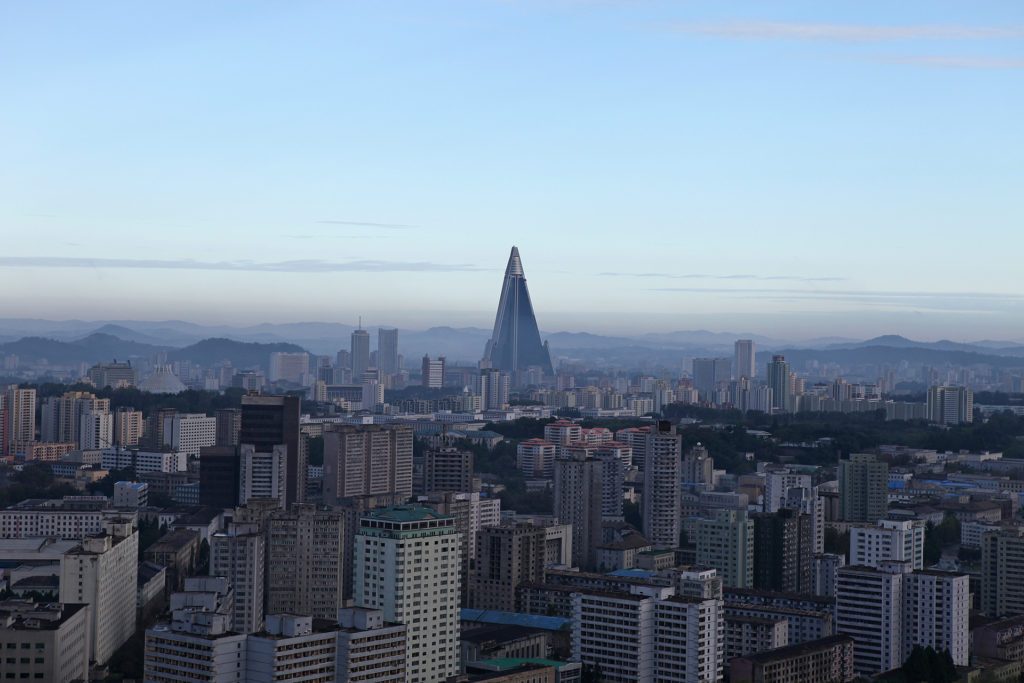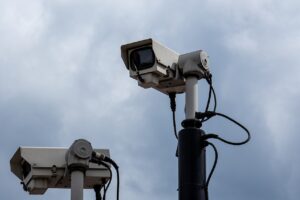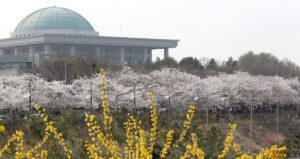The Stimson Center’s China Program director Yun Sun hosted an expert roundtable on the North Korean economy’s current and potential developments on May 20, 2020. The discussion focused on North Korea’s recent bond issuance, the impact of COVID-19 on the economic strategy, and prospects for economic policy moving forward. There were four expert takeaways.
The North Korean government is attempting to increase foreign exchange reserves with a new bond issuance, due to the combined impact of sanctions and COVID-19 on export earnings, an inability to access financial assistance from the international community, and a desire to prioritize self-sufficiency.
Specifics about the bonds are not yet known, including the denomination and the level of enforcement by the government of bond purchase. But the recent significant drop in trade and signs that the North Korean government’s foreign exchange revenues are down despite sanctions evasion activities indicate that the bonds are seen as a way for the government to obtain foreign exchange held by State Enterprises and particularly successful private entrepreneurs (donju). However, the success of the bonds is likely to be limited, as trust in the government to honor its financial obligations is low.
North Korea’s 2020 harvest will be a significant challenge in terms of production and distribution.
The closure of the China-North Korea border has interrupted critical imports of fertilizer, as well as other inputs for production and distribution and food for the markets. This will severely impact North Korea’s ability to meet its harvest targets and to provide food security for its population. Complicating the shortage of food is the public distribution system, which still is a source of income for about 10 million workers. Insufficient in normal times, prompting people to use private markets or corrupt practices to make ends meet, the distribution system will likely suffer now as the government clamps down on market pricing and rationing of available food.
North Korea’s plans to introduce changes in its economic policy have been complicated by COVID-19, and multiple potential policy paths lie ahead.
The previous practice of setting a five-year economic plan seems to have been abandoned for the near future. The Central Committee meeting in December 2019 discussed the need for changes to the economic system to improve economic management and emphasize self-sufficiency, recognizing the impact of sanctions and hardships facing the North Korean people and identifying ten key objectives. Better integration of state-directed and market activities should meet both the needs of the state and of the people. An important domestic challenge is how to reduce the bifurcation of people who support themselves in the markets and people who are within the state distribution system. But achieving progress will be difficult under COVID-19, with closed borders and the related trade shock on the economy. North Korea may attempt to suppress the markets, as it did in 2009, or it may attempt to build a socialist market economy like Vietnam has done. However, the international and domestic environments are both uncertain for North Korea, and the path forward is not yet clear.
North Korea is attempting to reengage with some international actors to revive its economy under COVID-19.
North Korea’s early actions seem to have constrained the spread of COVID-19 domestically, but have also choked construction, trade, tourism, and foreign currency earnings. Several recent actions indicate that the North Korean government may be seeking long-term protection for its health system as well as short-term economic revival. A delegation visited Beijing recently, perhaps to secure funding for a new hospital in Pyongyang; likewise, North Korea has sought medical machinery and supplies from Europe and the ROK. North Korea’s Mission to the U.N. has also requested relief of some sanctions to alleviate shortages, likely taking into consideration that the pandemic might increase some countries’ interest in softening the sanctions. Whether these efforts will be successful in bolstering the North Korean economy remains to be seen, but the multiple engagement attempts indicate that North Korea faces severe challenges in remaining isolated indefinitely.




